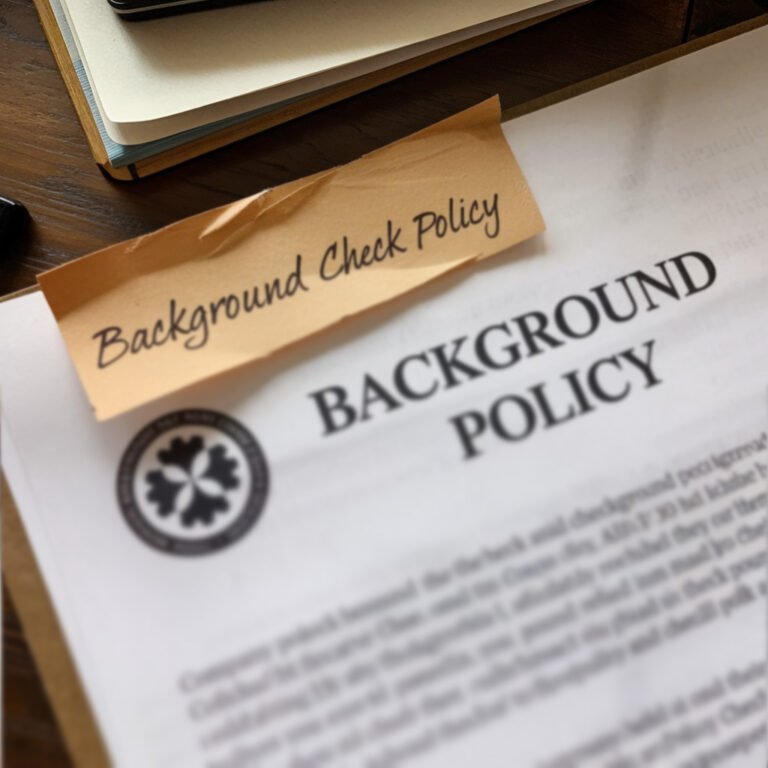
As an HR or talent management expert, you are aware of the importance of background checks in safeguarding both your clients and your business. Your business may suffer serious consequences if you don’t have a policy in place for background checks.
Imagine having an ineffective procedure that discourages qualified applicants. Alternatively, worse, unintentionally treating applicants differently in ways that give the impression that your business is prejudiced or biased.
A well-written background check policy is essential for both preventing legal issues and providing candidates with a positive onboarding experience.
Key Takeaways
The following are the essential details regarding background check policies:
- Policies requiring background checks assist businesses in lowering liability and risk.
- A defined screening procedure to refer to makes the work of hiring managers and HR easier.
- A smooth screening procedure increases the likelihood that job prospects will have a favorable opinion of your company.
- Policies should be sufficiently specific to let hiring managers know about all the screening procedures and the best kind of screening to utilize in each case.
- Using a platform designed for screening makes it easy to follow a policy.
What Is a Background Check Policy?
A background check policy is a document that outlines the rules and procedures your company uses for pre-employment investigations. They are frequently developed in collaboration with legal counsel and HR departments to ensure that the final policy conforms with all relevant rules and regulations in your nation, state, and industry.
Hiring managers, HR staff, and anybody else working with background checks should be aware of the policies governing them. Transparency can be promoted by giving job seekers access to the policy at the right time during the recruiting process.
Conducting complete, impartial, and consistent background checks is made easier with the support of a pre-employment screening policy. Your policy can be used for the various kinds of separate search elements that your background checks may have, such as:
- Criminal Background Check
- Employment Verifications
- Education Verifications
- PEER Credit Reports
- Motor Vehicle Records (Driver’s License Check)
- Drug Screening
Why Is a Background Check Policy Important?
Having a policy in place will help you choose the right candidates, keep you in compliance with state and local legislation, and assist you in adhering to the US-EEOC guidance known as the “Green Factors.” The main advantages of developing a strong background check policy before hiring someone are as follows:
Ensure Compliance with Hiring Laws
Many federal and state regulations regulate background checks. They can cause financial penalties, harm to your company’s reputation, and other legal repercussions if they are violated. For instance, having a documented policy can assist you prevent violation with the Fair Credit Reporting Act and lessen the likelihood that your recruiting practices violate discriminatory legislation.
Facilitate Consistent Guidelines & Procedures
Employers require uniformity and transparency in all facet of their business, including employment. Effective background check standards allow HR departments and recruiting managers to perform screenings and interpret results consistently. Fair results and happier candidates follow from this.
Create a Process for Role-Specific Background Checks
Depending on the kind of position you’re looking for, background checks can range in depth. For instance, if your job duties involve handling clients’ financial or medical information, you might wish to conduct more thorough screening. Additionally, you may want more extensive screening for executives as opposed to entry-level roles.
Your background check policy might specify the steps and standards for screening candidates for different kinds of positions. Given that you might not employ for some high-level positions very frequently, this can be really helpful. Your HR staff will have a resource to use when it comes time to fill those more specialized roles if you have a policy in place.
Consistency for Reference & Background Checks
In order to improve their appearance on paper, job seekers frequently exaggerate their resumes or leave out background information. HR professionals may find it difficult to check references and validate information as a result. Additionally, it exposes the business to the possibility of employing an unfit or underqualified candidate.
A background check policy provides your team with a structure for collecting and confirming the data that applicants submit. Both internal and external job hopefuls should be aware of this. Consistency and direction for future re-screenings or continuous staff checks can also be found in the policy.
What’s Included in a Background Check Policy?
The following subjects should be covered by an employer’s background check policy:
- The purpose of background screening for external and internal job candidates
- The scope of the screenings
- How the scope of the screening varies based on job type
- How negative findings are handled
- The procedures hiring managers and HR teams follow when doing screenings
- Establishing proper protocols to ensure report confidentiality, retention, and disposal of reports
The following sections go into further detail on topics that are commonly included in a background check policy:
Purpose Background Checks Serve for Your Organization
It is crucial to keep in mind that the purpose of criminal records and other data retrieved from background checks is not to impose punishment. RISK prevention should always be the main screening objective for private firms and other organizations.
This policy’s introduction emphasizes the value of background checks for your business. Give a succinct explanation of how the company uses screens to confirm applicants’ identities, credentials, experience, criminal histories, and overall suitability for the job. You could also talk about how they make sure the business abides by the law.
Consistency for Screenings
You can specify which positions need background checks and how thorough they need to be in this section. The following are some possible questions to ask while writing this section:
- Will background checks be done on all applicants or only for specific positions? Individual role responsibilities will allow you to customize the screening to particular departments or roles in accordance with the criteria of the position.
- What kinds of screening are going to be covered? Candidates who may handle money may have their credit checked, and those whose professions require driving may have their driving records checked.
- Will you conduct screening of current employees? You may choose to conduct routine background checks on current staff members. If so, be careful to notify staff members in writing. To ensure that your rescreening procedure complies with all relevant legislation, consult with knowledgeable legal counsel prior to putting the screening into effect.
Background Check Procedures
A consistent approach to background screen performance is crucial. Your policy might be helpful by outlining the actions that must be taken each and every time.
Begin at the very beginning. Be aware that the first step in your company’s hiring process is informing candidates that they will be subject to a pre-employment test. Don’t miss the chance to explain your risk-based strategy, prioritize, and keep your workplace safe.
Following the interview process, the policy can then explain what occurs. Before making a hiring decision, you might need to obtain the candidates’ written consent to perform a screening. You can also include in your policy what will happen if a candidate declines to consent to screening.
Additionally, your policy should outline a process for dealing with unfavorable material that a screen discloses. The policy might cover any existing adverse action procedure, for instance. It might explain the procedure your business must adhere to before formally rejecting the applicant.
Establish a Process for Conducting Background Checks
Establish thorough protocols if you choose to perform pre-employment background checks internally. Your hiring staff must make sure that all local, state, federal, and international regulations are followed (if hiring abroad). As you may understand, this carries a significant amount of danger and can be burdensome.
An alternative would be to use a third-party screening partner, to conduct your background checks. Technology designed especially for screening can be provided by a knowledgeable outside source. They can also handle compliance, which will free up your internal team’s time to work on other projects by taking on this significant obligation.
Set Up Disclosure & Authorization Forms
Candidates will receive these forms from you. They let candidates know you plan to screen them and get their written consent. Before screening, especially when it comes to employment, a proper stand-alone disclosure and authorization are necessary by law. In the past, this criterion has also been construed to cover independent contractors, agents, volunteers, and other people; this applies to circumstances in which an organization uses people who aren’t legally workers to carry out tasks.
You can add that being screened is a requirement for a job. Keep in mind that if someone declines to be screened, their application will no longer be considered.
The digital background check process that is included with a third-party provider’s screening service can incorporate these forms.
Create a Policy for Criminal Convictions
When a screen indicates that an applicant has a criminal conviction history, you will eventually have to deal with the findings. Companies are given guidelines by the Equal Employment Opportunity Commission (EEOC) on how to respond to certain circumstances.
Instead of taking a general approach to these cases, the EEOC advises hiring businesses to evaluate each criminal charge on an individual basis. Consider these three primary factors:
The type and seriousness of the transgression
How much time has gone by since the incident and/or the sentence’s completion?
The kind of work the individual is looking for (or, in the case of continuing screenings for present employees, currently holds)
Document Your Adjudication Process
Put your hiring team’s method for evaluating background check results in writing. Describe what to do if the findings of a screening lead you to reject a candidate for a position or promotion. Permit the applicant to ask for a customized evaluation in order to examine and furnish more pertinent details on any documents or to contest the accuracy of the documents. Always adhere to any extra state or local procedures that may be necessary, as well as the FCRA’s recorded adverse action letter process.
Create a Process for Sensitive Information Maintenance & Disposal
All background checks, no matter what they contain, are CONFIDENTIAL. Record the duration for which you intend to keep screening findings and include a strategy for appropriately discarding them at the conclusion of that period. For advice on retention and disposal, consult your legal team. Additionally, they may help you with FTC regulations regarding the destruction of paper records and digital files that hold personally identifiable information.
Regular Policy Updates
Additionally, you should indicate how frequently you plan to review the background check policy and procedure for your organization. It is advised to review at least once a year. Additionally, be sure to update and revise the policy if your firm undergoes changes or when new laws or regulations are implemented in the various local governments that oversee your business.
Best Practices for Improving Your Background Check Policy
Here are four best practices to adhere to when creating or updating your pre-employment screening policy:
- Be Comprehensive
Ensure that the policy is written so that it applies to the entire organization. To guarantee the fairness of your background checks, you must constantly employ the same guidelines and procedures.
A thorough policy also aids your hiring staff in understanding the proper timing and method of background checks. By eliminating uncertainty and guessing, it gives teams greater confidence when making hiring decisions. - Ensure Regulatory Compliance
It is imperative that your policy be drafted in accordance with all applicable local, state, federal, and international regulations, especially when hiring foreign workers. When hiring in more than one jurisdiction, employers must abide by the regulations of each one, which can vary significantly. While City A may allow criminal background checks, City B may limit or outright forbid the use of certain criminal data.
One of the largest challenges of pre-employment screening is regulatory compliance. It is among the primary factors that lead businesses to choose a third party for screening. - Observe Consistent Standards
Regardless of the candidate’s ethnicity, age, sex, religion, disability, or other protected trait, all screenings ought to be conducted uniformly. By giving precise instructions on when and how screenings should be conducted, HR background check standards promote regularity. This lessens the threats to your company’s brand and legal standing. - Keep Up-to-Date with Industry Practices Hiring and screening procedures are always changing. To keep abreast of legislative developments, consult your legal department on a regular basis and keep up with HR industry news. Then, make the necessary updates to your screening policy.

